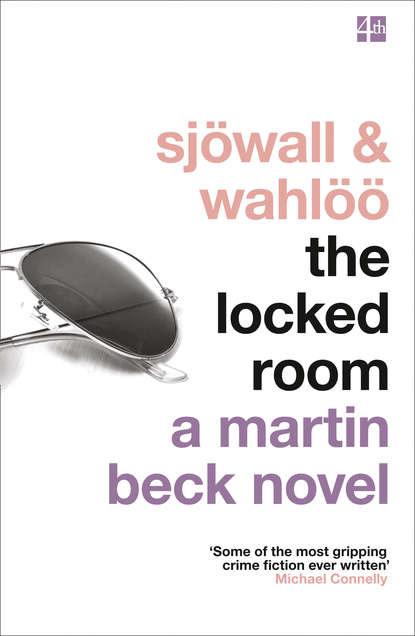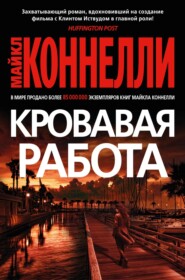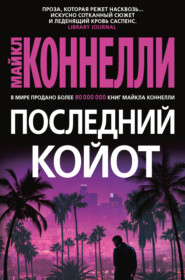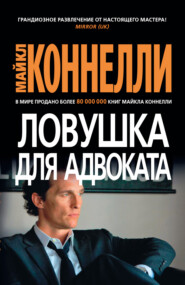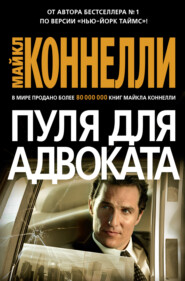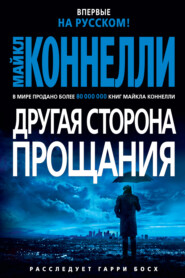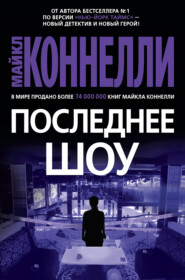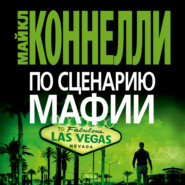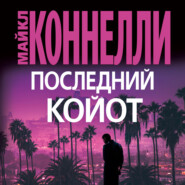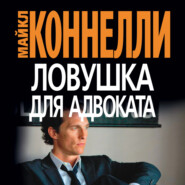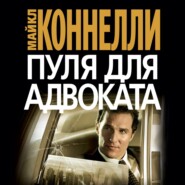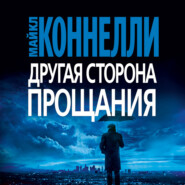По всем вопросам обращайтесь на: info@litportal.ru
(©) 2003-2024.
✖
The Locked Room
Автор
Год написания книги
2019
Настройки чтения
Размер шрифта
Высота строк
Поля
Chapter 6 (#u5dfd9fb2-92b3-588f-8211-915499ebe4ab)
Chapter 7 (#u9cf01504-49ac-56d6-b8b8-1411cd4fd06e)
Chapter 8 (#u9b6e0e18-15c9-587d-a22d-36326c9b2fab)
Chapter 9 (#ud7311b40-dd40-5651-a855-a06912c9d3e6)
Chapter 10 (#u1c85f3b1-cb07-5641-8f3b-4a9e8a7990d3)
Chapter 11 (#uebea2334-8467-5a9f-ad67-31319a2a22f9)
Chapter 12 (#u4242b91c-743c-538e-92e5-9fd2280c1c33)
Chapter 13 (#litres_trial_promo)
Chapter 14 (#litres_trial_promo)
Chapter 15 (#litres_trial_promo)
Chapter 16 (#litres_trial_promo)
Chapter 17 (#litres_trial_promo)
Chapter 18 (#litres_trial_promo)
Chapter 19 (#litres_trial_promo)
Chapter 20 (#litres_trial_promo)
Chapter 21 (#litres_trial_promo)
Chapter 22 (#litres_trial_promo)
Chapter 23 (#litres_trial_promo)
Chapter 24 (#litres_trial_promo)
Chapter 25 (#litres_trial_promo)
Chapter 26 (#litres_trial_promo)
Chapter 27 (#litres_trial_promo)
Chapter 28 (#litres_trial_promo)
About the Authors (#litres_trial_promo)
Also by Maj Sjöwall and Per Wahlöö (#litres_trial_promo)
About the Publisher (#litres_trial_promo)
INTRODUCTION (#u3bf999e2-49f3-5162-8699-d15604ac1633)
What I don't like about writing an introduction is that you can't give anything away. You can only tease. You can say to the reader that you are in for a great ride, a great set of characters and a great story but you can't really make your case. You don't want to ruin it for the reader, so you can't exactly say why. So an introduction is sort of a ‘trust me’ proposition. I am here to tell you that if you are about to hop aboard and ride this story, then you are in for a great ride. Trust me.
I first took this ride about thirty years ago. A child of the movies and television, I have come to most of the masters of crime fiction through the visual medium. I read Raymond Chandler, Ross MacDonald and Joseph Wambaugh after seeing their work on the screen first. In each case I found the written stories that spawned the screen stories to be much deeper, more detailed and more gripping as they took the reader to the place no movie or television show can go; inside a character's thoughts.
So too was the case with the work of Maj Sjöwall and Per Wahlöö. The movie came first. My father and I both loved cop flicks. We went together often. One night in Fort Lauderdale, Florida, we went to see The Laughing Policeman with Walter Matthau and Bruce Dern. I didn't know it was based on a book until I saw the credits. I liked the movie, with the deeply brooding Detective Martin played by Matthau and the more reactive, loose cannon Detective Larsen played by Dern.
Not long after, I bought the book and quickly learned that the original story was not set in San Francisco, California, but in Stockholm, Sweden, and that the film's Detective Jake Martin was actually Detective Martin Beck in the book. No matter, I had invested. I read the book and there begun one of the best lessons a writer in waiting could ever have. In the next several years I moved from book to book in the Martin Beck series. I found it to be one of the most authentic, gripping and profound collection of police procedurals ever accomplished.
Sjöwall and Wahlöö set out to write a ten book, ten year glimpse of Swedish society, using the detective novel as the magnifying glass through which they would conduct their examination. They achieved their goal with great mastery. As a young reader with the intention/hope of writing crime novels someday, there were no better teachers when it came to showing how the detective story could rise above mere entertainment to the point of holding a mirror up to ourselves and the societies we build. Their work constantly reminds me of something the great writer Richard Price once said when questioned about his repeated forays into the realms of crime and detection. He said that he liked writing about detectives because when you circle around a murder long enough, you get to know a city. Long before he said that, Maj Sjöwall and Per Wahlöö knew it and practised it. The Martin Beck books tell us so much more than just how a crime is solved. Beautifully structured, textured and rendered, they tell us how a crime happens and how a city, country and society can often be complicit. They take us beneath the surface. They tell it like it is. Though the series now ages past thirty years, there is both a timeliness and time-lessness to the books that make them just as important now as the days they first came out of the bindery.
The Locked Room is flat out one of my favourites in the series. I am blown away by the authors' wonderful and original take on a standard mystery contraption – a locked room murder. I am in awe of the novel as a showcase of Martin Beck at his brooding best. The authors avoid the norms by weaving two seemingly separate investigations through the book; the story of a bank robbery gone bad and the story of Beck's investigation into what appears to be an unsolvable case, a man found shot to death in a room with the door and window locked. The case has been all but given up on until the detective returns to the job after recovering from wounds received in an earlier story. As he deals with his physical and mental recovery he works the locked room case over like a child works on a loose tooth with his tongue.
From the standpoint of a writer who has some experience attempting such things, there is no finer example of how to do it. Sjöwall and Wahlöö do it with completely convincing detail, humour and that most important ingredient; momentum. The book never lags. It never fails to keep the reader in his seat.
All the while the book carries the vivid imagery of Stockholm and its underbelly of crime that Beck traverses. I read this book long before I ever visited Stockholm but the sense of the city, its smells, its sounds, its hidden dangers and beauties are vibrantly alive. The city is as much a character in the book as any person who appears in its pages.
What's more, the book carries a dark irony: the idea of justice in which we are all guilty of something, and if we are not punished for the crimes we have committed then we are punished for those we have not. It is a daring proposition and one I have seen in a number of other books. But I have not seen it played out so well as in these pages.
As with the entire series of ten books, Martin Beck is the pole that holds the tent up in The Locked Room. His presence looms over every page whether he is actually on it or not. To me Beck is the original grinder, an empathist who takes it all in and grinds it constantly in his head. He grinds the case down to powder and only then does he see the solution. He operates with a certain melancholy that is just right. He is alone but not lonely. He is the thinking man's detective. The writer Joseph Wambaugh once said that the best crime stories are not about how a cop works on a case, but how a case works on a cop. Martin Beck is a most fitting example of the accuracy of this. And The Locked Room is a most fitting case for him to work and be worked upon.
Michael Connelly
1 (#u3bf999e2-49f3-5162-8699-d15604ac1633)
The bells of St Maria struck two as she came out from the metro station on Wollmar Yxkullsgatan. Before hurrying on towards the Maria Square she halted and lit a cigarette.
The din of the church bells reverberated through the air, reminding her of the dreary Sundays of her childhood. She'd been born and grown up only a few blocks from the Church of St Maria, where she'd also been christened and confirmed – the latter almost twelve years ago. All she could remember about her confirmation classes was having asked the vicar what Strindberg had meant when he'd written of the ‘melancholy descant’ of the St Maria bells. But she couldn't recall his answer.
The sun was beating down on her back. After crossing St Paulsgatan she eased her pace, not wishing to break into a sweat. All of a sudden she realized how nervous she was and regretted not having taken a tranquillizer before leaving home.
Reaching the fountain in the middle of the square, she dipped her handkerchief in the cool water and, walking away, sat down on a bench in the shade of the trees. She took off her glasses and rubbed her face with the wet handkerchief, polished her glasses with the hem of her light-blue shirt, and put them on again. The large lenses reflected the light, concealing the upper half of her face. She took off her wide-rimmed blue denim hat, lifted up her straight blonde hair, so long it brushed against her shoulders, and wiped the nape of her neck. Then, putting on her hat, she pulled it down over her brow and sat quite still, her handkerchief crumpled up into a ball between her hands.
After a while she spread the handkerchief out beside her on the bench and wiped the palms of her hands on her jeans. She looked at her watch: half past two. A few minutes to calm down before she had to go.
When the clock struck 2.45 she opened the flap of the dark-green canvas shoulder bag that lay in her lap, picked up her handkerchief, which by now was completely dry, and without folding it slipped it into the bag. Then she got up, slung the leather strap of the bag over her right shoulder, and started walking.
Approaching Hornsgatan she grew less tense; everything, she persuaded herself, would work out fine.
It was Friday, the last day of June, and for many people the summer holidays had just begun. On Hornsgatan, both on the street itself and on the pavements, the traffic was lively. Emerging from the square, she turned off to the left and went into the shadow of the houses.
She hoped today had been a wise choice. She'd weighed the pros and cons and realized she might have to put off her project until next week. No harm in that, though she wasn't too keen on exposing herself to such mental stress.
She got there earlier than she'd planned and halted on the shady side of the street, observing the big window opposite her. Its shiny glass reflected the sunshine, and the heavy traffic partially blocked her view. But one thing she noticed. The curtains were drawn.
Pretending to be window shopping, she walked slowly up and down the pavement, and although there was a large clock hanging outside a watchmaker's shop nearby she kept looking at her watch. And all the while she kept an eye on the door on the other side of the street.





